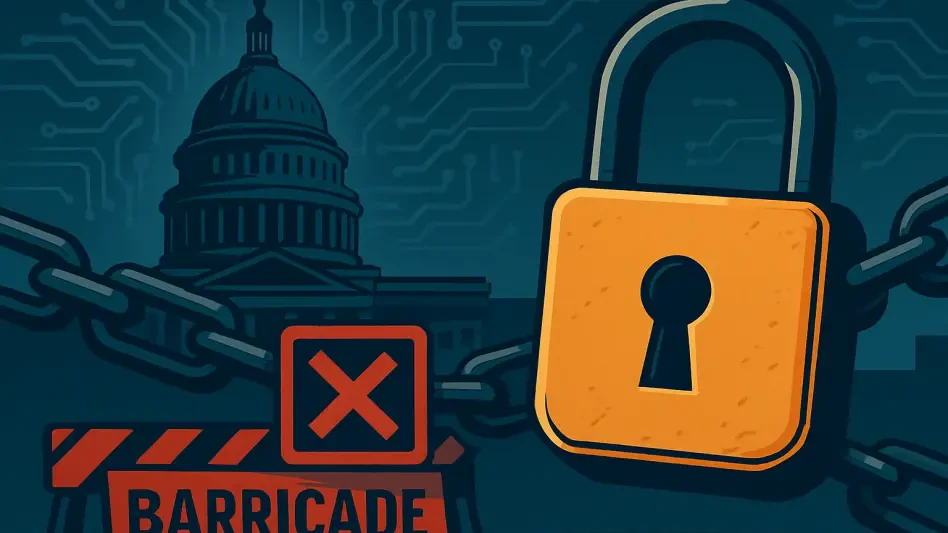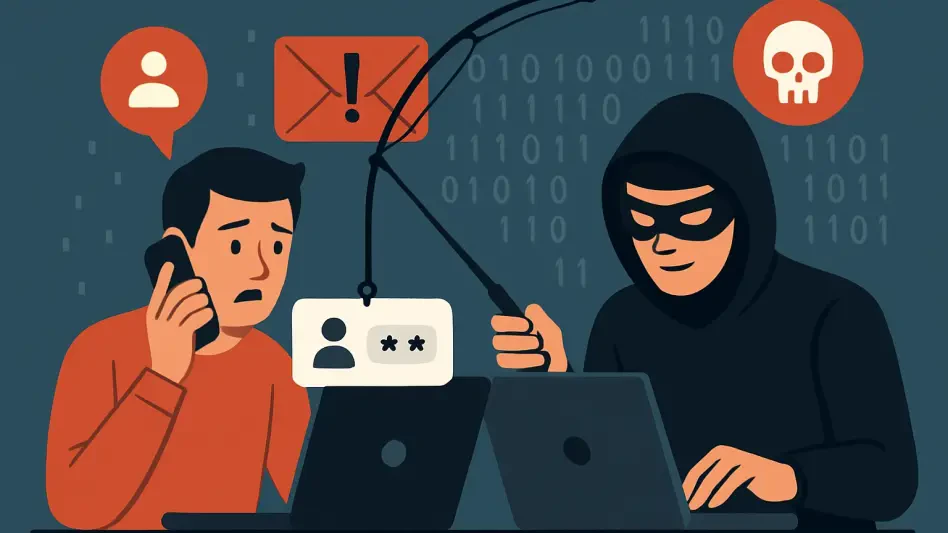The recent PlayStation Network (PSN) outage has sent shockwaves through the gaming community and beyond. Occurring on a Saturday night, this incident disrupted services for millions of users globally, making it one of the most significant service interruptions in recent memory. More than just an inconvenience, the outage served as a stark reminder of the potential vulnerabilities and security risks associated with online services. In today’s increasingly digital world, where companies rely heavily on subscription-based models, the need for robust cybersecurity strategies is more critical than ever before.
The Impact of the PSN Outage
For PlayStation users who pay a monthly subscription fee for access to online services and games, the recent PSN outage was particularly frustrating. Disruptions like these not only impact users’ entertainment plans but also raise broader concerns about the reliability of digital services on which consumers financially depend. Sony’s prompt action to extend subscriptions by five days demonstrated an effort to maintain customer loyalty; however, it also underscored a glaring issue in the reliability of such services. Financial markets responded negatively, with a 2% dip in Sony’s stock, highlighting the financial vulnerabilities associated with online service disruptions.
The incident brought to light the broader implications for subscription-based services. These services, whether for gaming, streaming, or software applications, have become ubiquitous in our daily lives. This model offers companies a steady recurring revenue stream but also amplifies the pressure to maintain seamless service continuity. Consumers have high expectations, and any interruption can lead to customer dissatisfaction and potential financial repercussions.
The Subscription Economy and Its Vulnerabilities
Subscription services like PlayStation Plus have transitioned from one-time electronic purchases to recurring payments, which are primarily aimed at augmenting revenue streams. While some games offer offline play, many titles require online check-ins, making consistent service crucial. The PSN outage denied users access to games they had already paid for, thus putting a spotlight on the inherent dangers within the subscription-based economy. This situation emphasized just how pervasive subscriptions have become and how reliant consumers are on these models for their daily entertainment and utility services.
Moreover, the subscription model’s dependency on consumer satisfaction means that any disruption can lead to far-reaching consequences, including financial market reactions. The 2% dip in Sony’s stock post-outage is a testament to this, showcasing the financial markets’ sensitivity to service reliability issues. To sustain customer trust and ensure long-term business viability, businesses must prioritize consistent and reliable service delivery, reinforcing the need for robust cybersecurity measures.
Cybersecurity Concerns in Subscription Models
With companies that operate under subscription models collecting and storing vast amounts of customer data to enhance consumer experiences, they become attractive targets for cyberattacks. Minor outages or notable breaches can be symptomatic of the underlying vulnerabilities these companies face. When an outage results from a data breach, the consequences extend far beyond temporary service disruptions, potentially exposing personal information such as names, addresses, birthdates, and financial details of consumers.
For businesses, a data breach can lead to severe repercussions, including immediate profit loss, reputational damage, and a decline in customer trust. Maintaining customer trust is imperative in the subscription economy, and any failure can undermine consumer confidence and trigger a broader range of financial repercussions. Sony’s own history with data breaches, including the infamous 2011 incident that cost $171 million in investigation, security measures, and user compensation, illustrates the costly implications of cybersecurity failures.
Legal and Financial Repercussions of Data Breaches
Data breaches often bring about legal repercussions, with affected individuals seeking damages through class-action lawsuits. These legal implications are usually prolonged and costly, especially when sensitive personal, legal, or medical information is compromised. The financial markets’ reaction to the recent incident with a 2% dip in Sony’s stock price underscores the serious financial vulnerabilities tied to such service disruptions. Maintaining customer trust is crucial in the subscription economy, and any failure in service can significantly erode consumer confidence, triggering broader financial repercussions.
Sony’s experience in 2011 exemplifies the lasting impact of a significant data breach. After shutting down their servers for 23 days, the estimated costs of investigation, security enhancements, and user compensation amounted to approximately $171 million. This historical context reinforces the importance of not only immediate damage control but also implementing long-term strategic measures to protect consumer data and maintain business integrity.
Mitigating Cybersecurity Risks
To effectively mitigate cybersecurity risks, companies need to adopt a comprehensive approach. Utilizing cyber risk assessment tools to analyze and prioritize vulnerabilities across various critical infrastructures is crucial. These tools help allocate resources to address the most severe threats first, ensuring that the company’s defense mechanisms are both proactive and responsive. Anomaly detection systems powered by machine learning and AI are integral in identifying deviations from normal patterns, enabling preemptive actions before full-scale attacks can occur.
Furthermore, automating incident responses significantly enhances a company’s defense mechanisms. By automating reactions to specific threats like malware or distributed denial-of-service (DDoS) attacks, companies can quickly contain these threats, minimize downtime, and reduce potential damage. As technology evolves, investing in AI-specific security measures becomes crucial in securing systems against increasingly sophisticated cyber threats. Agentic AI can dynamically detect suspicious activities and respond in real-time, blocking potentially harmful actions without the need for human intervention, particularly valuable during off-hours when human oversight may be minimal.
The Role of Human Expertise in Cybersecurity
While AI can handle many repetitive security tasks, addressing nuanced and complex threats requires human expertise. Security teams must be robustly trained to leverage human intuition and creativity in identifying and mitigating sophisticated AI-driven threats. The training and equipping of cybersecurity personnel remain critical in maintaining a strong defense against cyberattacks. Human expertise provides the crucial ability to understand context, make judgment calls, and adapt to ever-evolving threats in ways that AI cannot always replicate.
The recent PSN incident, although resolved quickly with the company citing an ‘operational issue’ rather than a hack, serves as a poignant reminder of the fragility of interconnected digital services. It underscores the ongoing importance for businesses to continuously enhance their protective measures and maintain robust and dynamic cybersecurity strategies. The integration of human expertise with advanced AI technologies creates a more resilient security posture capable of defending against a broad spectrum of cyber threats.
Lessons for the Subscription Economy
The recent PlayStation Network (PSN) outage has caused significant concern within the gaming community and beyond. Taking place on a Saturday night, the incident disrupted services for millions of users worldwide, marking one of the most notable service interruptions in recent history. This was more than just a minor inconvenience; the outage highlighted the potential vulnerabilities and significant security risks tied to online services. In our increasingly digital age, where businesses largely depend on subscription-based models, the importance of implementing strong cybersecurity measures has never been more critical. The PSN disruption serves as a crucial reminder that even the most popular and seemingly secure platforms are susceptible to unexpected failures. Companies must constantly evaluate and improve their cybersecurity strategies to prevent similar incidents, ensuring the reliability of their services for their global user base. This event underscores the necessity for vigilance and proactive measures in protecting our digital infrastructures.







